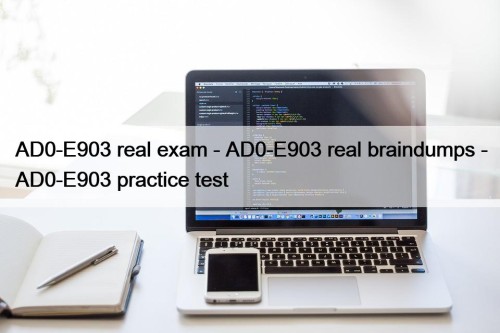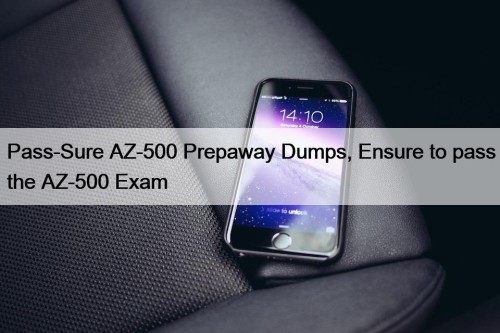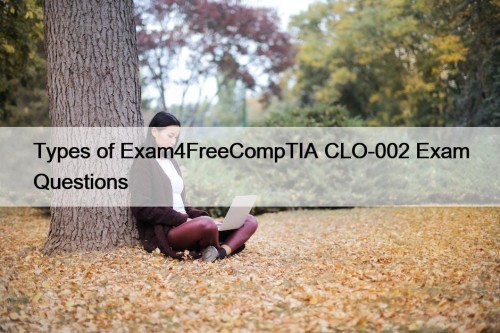Most Popular
 AD0-E903 real exam - AD0-E903 real braindumps - AD0-E903 practice test
AD0-E903 real exam - AD0-E903 real braindumps - AD0-E903 practice test
2025 Latest PracticeDump AD0-E903 PDF Dumps and AD0-E903 Exam Engine ...
 Pass-Sure AZ-500 Prepaway Dumps, Ensure to pass the AZ-500 Exam
Pass-Sure AZ-500 Prepaway Dumps, Ensure to pass the AZ-500 Exam
The value of professional qualification has been shown to rise ...
 Types of Exam4FreeCompTIA CLO-002 Exam Questions
Types of Exam4FreeCompTIA CLO-002 Exam Questions
For some difficult points of the CLO-002 exam questions which ...



2025 CCRN-Pediatric New Real Test | Newest Critical Care Nursing Exam 100% Free Test Sample Questions

On the one hand, our company hired the top experts in each qualification examination field to write the CCRN-Pediatric training materials, so as to ensure that our products have a very high quality, so that users can rest assured that the use of our research materials. On the other hand, under the guidance of high quality research materials, the rate of adoption of the CCRN-Pediatric Study Materials preparation is up to 98% to 100%.
AACN CCRN-Pediatric Exam is a comprehensive exam that covers a wide range of topics related to pediatric critical care nursing. CCRN-Pediatric exam is designed to test the knowledge and skills of nurses who work in pediatric critical care, including their ability to assess and manage patients with complex medical conditions, use critical thinking to make clinical decisions, and provide safe and effective care for critically ill children.
>> CCRN-Pediatric New Real Test <<
Tips to Crack the AACN CCRN-Pediatric Exam
We have handled professional CCRN-Pediatric practice materials for over ten years. Our experts have many years’ experience in this particular line of business, together with meticulous and professional attitude towards jobs. Their abilities are unquestionable, besides, CCRN-Pediatric practice materials are priced reasonably with three kinds. We also have free demo offering the latest catalogue and brief contents for your information, if you do not have thorough understanding of our materials. Many exam candidates build long-term relation with our company on the basis of our high quality CCRN-Pediatric practice materials.
Becoming certified in pediatric critical care nursing through the AACN CCRN-Pediatric Exam can be a valuable credential for nurses. Certification can demonstrate a nurse's commitment to providing high-quality care to critically ill children and can also lead to increased job opportunities and higher salaries. Additionally, certified nurses may be better equipped to provide evidence-based care and make informed decisions about patient care.
AACN Critical Care Nursing Exam Sample Questions (Q136-Q141):
NEW QUESTION # 136
A child has fever, chills, back pain, elevated WBC and ESR, and abnormal urinalysis. After IV fluids and antibiotics, what procedure should be anticipated?
- A. KUB
- B. Chest x-ray
- C. Upper GI
- D. Renal ultrasound
Answer: D
Explanation:
These findings are consistent withpyelonephritisor another upper urinary tract infection. Arenal ultrasound is a non-invasive test used to evaluate forstructural abnormalities, abscess, or obstruction, especially in a febrile child with a urinary tract infection.
"Renal ultrasound is indicated after diagnosis of febrile UTI to evaluate renal anatomy and rule out complications like abscess." (Referenced from CCRN Pediatric - Direct Care: Renal, Urinary Tract Infections and Imaging)
NEW QUESTION # 137
The mother of a 16-month-old child who is coughing and having trouble breathing calls the clinic to ask advice because she suspects that her child has croup. Which of the following instructions would be most appropriate?
- A. Get the child to take as much fluid as possible
- B. Give over-the-counter cough syrup every 6 hours
- C. Take the child into the bathroom and run the hot water
- D. Administer acetaminophen (Tylenol) every 4 hours
Answer: C
Explanation:
Explanation: For a child with croup who is coughing and having difficulty breathing, the child should be taken into the shower where hot water is running to make the bathroom steamy. Steam helps to loosen secretion and relieve some of the respiratory distress. Giving acetaminophen is helpful but will not ease difficult breathing. Giving over-the-counter cough syrup is inappropriate because the underlying problem is airway inflammation and subsequent mucus accumulation and bronchoconstriction. Getting the child to take as much fluid as possible is important but it will not be effective in easing difficult breathing.
NEW QUESTION # 138
When is the best time to do a corrective surgery for an infant with hypospadias:
- A. Within few months after birth
- B. 6-18 months of age.
- C. 72 hours after birth
- D. Anytime during pre school age
Answer: B
Explanation:
Explanation: 6-18 months is the preferred age to do a corrective surgery for an infant with hypospadias because fear of castration and body image is not yet developed. It can't be performed shortly after birth because the phallus is not developed enough. Fear of bodily mutilation is present during pre school age.
NEW QUESTION # 139
A child with short bowel syndrome presents with fever, dehydration, and weight loss. To ensure nutrition, the nurse should anticipate:
- A. NG tube for bolus feeds
- B. Transpyloric tube for continuous feeds
- C. Encouraging oral feeds
- D. Total parenteral nutrition (TPN)
Answer: D
Explanation:
Short bowel syndromeoften results inmalabsorption, requiringtotal parenteral nutrition (TPN)for adequate caloric and nutrient intake-especially during periods of stress, weight loss, or infection when enteral tolerance is reduced.
"Children with significant bowel resection may require TPN to meet metabolic needs during acute illness or poor enteral tolerance." (Referenced from CCRN Pediatric - Direct Care: Gastrointestinal, Malabsorption and TPN Management)
NEW QUESTION # 140
A 13-year-old client with acute glomerulonephritis asks the nurse about his diet. The nurse assigned said that he should eat foods which are low in:
- A. Glucose
- B. Fat
- C. Protein
- D. Potassium
Answer: D
Explanation:
Explanation: Pediatric client with acute glomerulonephritis are oliguric, therefore Potassium rich food should be avoided to prevent cardiac dysryhthmia associated with hypokalemia.
NEW QUESTION # 141
......
CCRN-Pediatric Test Sample Questions: https://www.passtorrent.com/CCRN-Pediatric-latest-torrent.html
- CCRN-Pediatric Reliable Test Dumps 🦟 Latest CCRN-Pediatric Mock Test 😫 CCRN-Pediatric Latest Dumps 👱 Simply search for ➽ CCRN-Pediatric 🢪 for free download on ⮆ www.exam4pdf.com ⮄ ♥CCRN-Pediatric Valid Dumps Sheet
- Free PDF Quiz 2025 AACN Perfect CCRN-Pediatric New Real Test 🐈 Enter 「 www.pdfvce.com 」 and search for [ CCRN-Pediatric ] to download for free 🚛CCRN-Pediatric Valid Dumps Sheet
- Free PDF Quiz Newest AACN - CCRN-Pediatric - Critical Care Nursing Exam New Real Test 🏢 Enter ➡ www.prep4pass.com ️⬅️ and search for ✔ CCRN-Pediatric ️✔️ to download for free 🚗Certification CCRN-Pediatric Questions
- 2025 AACN CCRN-Pediatric: Unparalleled Critical Care Nursing Exam New Real Test 🌛 Open website ▷ www.pdfvce.com ◁ and search for ➥ CCRN-Pediatric 🡄 for free download 🎥Valid CCRN-Pediatric Exam Labs
- Exam CCRN-Pediatric Course 🙀 CCRN-Pediatric Exam 💒 CCRN-Pediatric Guide Ⓜ ⮆ www.prep4pass.com ⮄ is best website to obtain ⏩ CCRN-Pediatric ⏪ for free download 😄CCRN-Pediatric Latest Exam Review
- Certification CCRN-Pediatric Questions 💦 CCRN-Pediatric Latest Dumps 🦐 CCRN-Pediatric Exam 🎢 Search for 《 CCRN-Pediatric 》 and download it for free immediately on ⇛ www.pdfvce.com ⇚ 🤓CCRN-Pediatric Reliable Exam Prep
- Hot CCRN-Pediatric New Real Test | Well-Prepared CCRN-Pediatric Test Sample Questions: Critical Care Nursing Exam 💛 【 www.examcollectionpass.com 】 is best website to obtain ✔ CCRN-Pediatric ️✔️ for free download ⏯Free CCRN-Pediatric Exam
- CCRN-Pediatric Reliable Test Dumps 📆 Exam CCRN-Pediatric Course 💎 CCRN-Pediatric Reliable Test Dumps 🧑 Search for [ CCRN-Pediatric ] and download it for free immediately on ➽ www.pdfvce.com 🢪 📖Reliable CCRN-Pediatric Exam Preparation
- Valid CCRN-Pediatric Test Forum 🐵 Valid CCRN-Pediatric Exam Labs 🐞 Valid CCRN-Pediatric Test Forum 😣 Search for [ CCRN-Pediatric ] and download it for free immediately on 「 www.pass4leader.com 」 🚥Latest CCRN-Pediatric Exam Objectives
- CCRN-Pediatric Latest Study Questions 👹 CCRN-Pediatric Latest Study Questions 🏈 Exam CCRN-Pediatric Course 🔥 Search for { CCRN-Pediatric } and download it for free immediately on ➤ www.pdfvce.com ⮘ 🤱Certification CCRN-Pediatric Cost
- CCRN-Pediatric Latest Study Questions 🥈 Certification CCRN-Pediatric Questions 💭 CCRN-Pediatric Latest Study Questions 🧲 Simply search for 【 CCRN-Pediatric 】 for free download on ⏩ www.prep4sures.top ⏪ 🎸Valid CCRN-Pediatric Test Forum
- CCRN-Pediatric Exam Questions
- web3score.net team.dailywithdoc.com archicourses.com curiosiityclasses.com alexisimport.com tywd.vip www.yueqiankongjian.top buttupuang.id amanarya.in startuphub.thinktankenterprise.com
Tags: CCRN-Pediatric New Real Test, CCRN-Pediatric Test Sample Questions, CCRN-Pediatric Latest Braindumps, 100% CCRN-Pediatric Exam Coverage, CCRN-Pediatric Reliable Exam Price